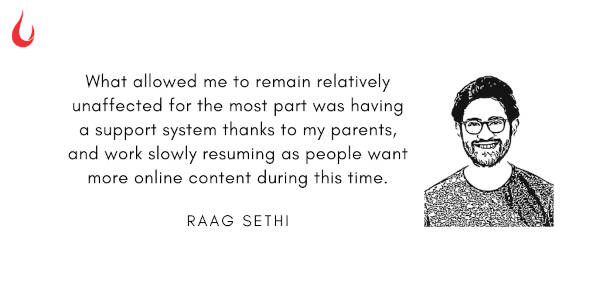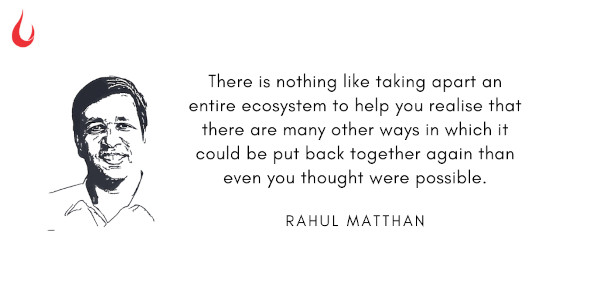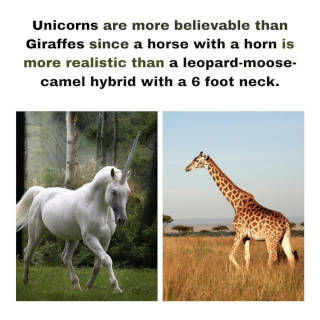[Image by Dennis Larsen from Pixabay]
Good morning,
At the time of putting this newsletter together, people across the world have been glued to news feeds from the US, watching and listening incredulously at the happenings there. Why do the happenings there interest people the world over? It’s because of the US’s military might, economic power and technological innovation. It also has to do with the kind of people who built the country. There is much evidence of that in the pages of history books penned by writers such as Doris Kearns Goodwin who wrote the magnificent Team of Rivals: The Political Genius of Abraham Lincoln.
She shares an anecdote about Lincoln by one of the greatest writers of our times, Leo Tolstoy, in 1908. He was the guest of a tribal chief “living far away from civilized life” and the chief asked Tolstoy to tell them about the greatest men of their times. Just when he was done, Tolstoy was told, “But you have not told us a syllable about the greatest general and greatest ruler of the world.” Tolstoy got curious and when he probed, figured, they were asking about Lincoln.
And so, Tolstoy went on to tell them everything he knew about Lincoln’s “home life and youth… his habits, his influence upon the people and his physical strength.” When he finished, they were so grateful for the story that they presented him with “a wonderful Arabian horse.” The next morning, as Tolstoy prepared to leave, they asked if he could possibly acquire for them a picture of Lincoln. Thinking that he might find one at a friend’s house in the neighbouring town, Tolstoy asked one of the riders to accompany him. “I was successful in getting a large photograph from my friend,” recalled Tolstoy. As he handed it to the rider, he noted that the man’s hand trembled as he took it. “He gazed for several minutes silently, like one in a reverent prayer, his eyes filled with tears.”
Tolstoy went on to observe, “This little incident proves how largely the name of Lincoln is worshipped throughout the world and how legendary his personality has become. Now, why was Lincoln so great that he overshadows all other national heroes? He really was not a great general like Napoleon or Washington; he was not such a skilful statesman as Gladstone or Frederick the Great; but his supremacy expresses itself altogether in his peculiar moral power and in the greatness of his character.
“Washington was a typical American. Napoleon was a typical Frenchman, but Lincoln was a humanitarian as broad as the world. He was bigger than his country—bigger than all the Presidents together.”
In this issue
- Two versions of passion
- The importance of taking things apart
- The truth about unicorns
Have a good day.
Two versions of passion
In his essay, Raag Sethi, guitarist, bassist and music producer, and the founder of Compass Box Studio in Ahmedabad, contrasts two versions of passion he witnessed at home as he was growing up—one in his father Geet Sethi, world champion in billiards, and another in his mother Kiran Bir Sethi, interiors designer and educator.

“My father was my first peek into excellence, which is strange considering I didn't even understand the fuss around his success. Cue sports was an obscure activity and didn't have the pizazz of tennis or cricket. There were relatively few Indians playing it and fewer still that had the resolve to call it a sport and not just a hobby. He broke ground and records by devoting himself to the green baize. And at the same age that I was figuring out what to major in college, he had won his first world title. It's still ridiculous to think someone can be the ‘world’s best’ in something in their early 20s…
“My mother, on the other hand, has gone through two very different professions—as an interiors designer and as an educator. But I would argue, the passion has remained unchanged—it’s just that the conduit changed from spaces and aesthetics to children and impact. Her design phase lasted from her early 20s to her mid-30s. She then made a drastic shift from having a design studio to constructing a school. Without a background in education or cognitive theory, she decided the next best thing after a design studio was a school.
“Through them, I was witness to two versions of passion. One that is steadfast and all-consuming like my father’s, and one that is more malleable and adaptable like my mother’s.”
Raag’s piece, a part of the fifth episode of Talkin’ ‘Bout My Generation, has an audiogram by his mother Kiran Bir Sethi, and it will be followed by a Facebook Live conversation between the duo on Saturday November 7, at 7.30 pm. To register, click here: bit.ly/FFTAMG.
Dig Deeper
The importance of taking things apart
In his latest column, Rahul Matthan explains the idea behind OCEN, Open Credit Enablement Network Specification, which hopes to do to credit what UPI (the framework on which PhonePe and Google Pay operate) did to payments.

Matthan writes: “The bold ambition of OCEN is to fix India's broken credit market infrastructure. The solution it proposes calls for the unbundling of lending by disaggregating the entire loan ecosystem and then atomising it down to its constituent parts. This allows multiple specialized entities to each individually perform one of the many sub-tasks that go into a lending product. Some entities will focus on sourcing and distribution while others will carry out identity verification, underwriting, capital arrangement, cash entrapment and a whole host of other functions. For all these entities the OCEN specification will be the common language that will string the different functions they perform into a single coherent user experience.
“At scale, OCEN will generate a profusion of products. There is nothing like taking apart an entire ecosystem to help you realise that there are many other ways in which it could be put back together again than even you thought were possible.”
Dig Deeper
The truth about unicorns

(Via WhatsApp)
Tell us what you think and find noteworthy. Head over to our Slack channel.
And if you missed previous editions of this newsletter, they’re all archived here.
Bookmark Founding Fuel’s special section on Thriving in Volatile Times. All our stories on how individuals and businesses are responding to the pandemic until now are posted there.
Warm regards,
Team Founding Fuel

